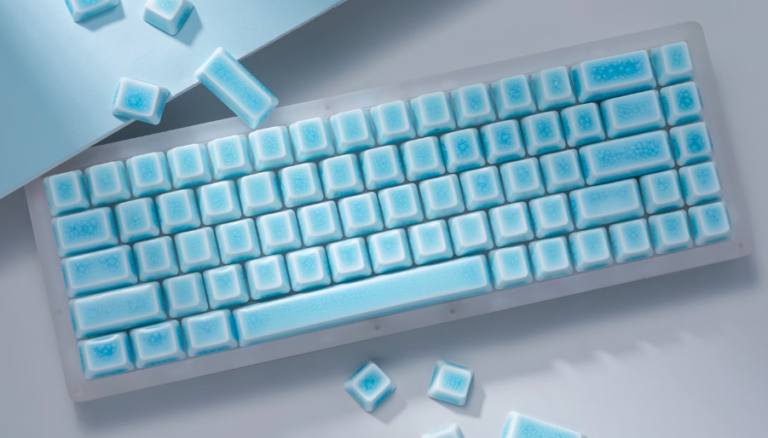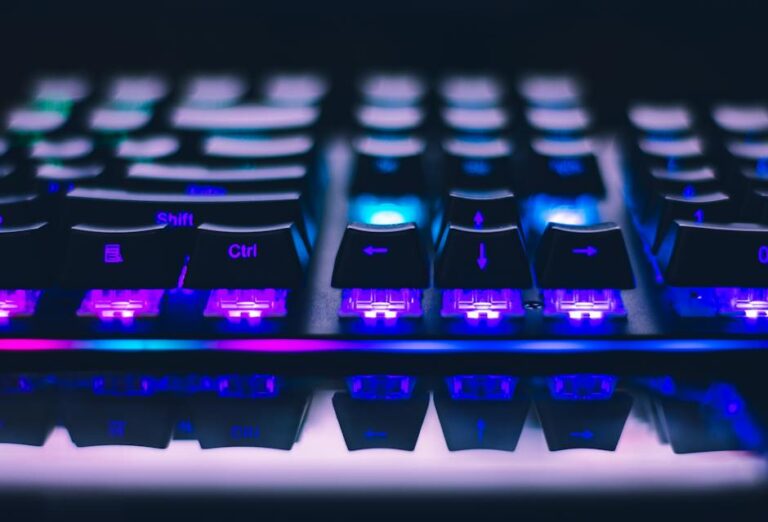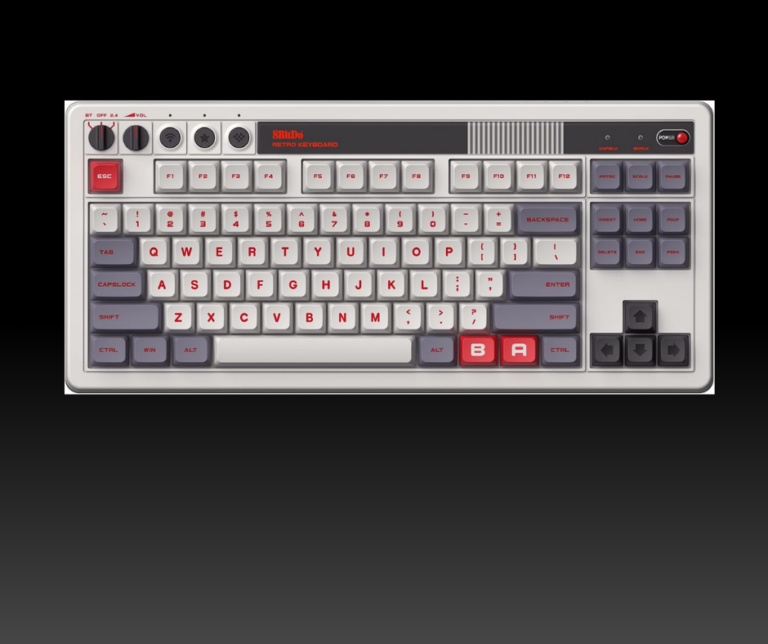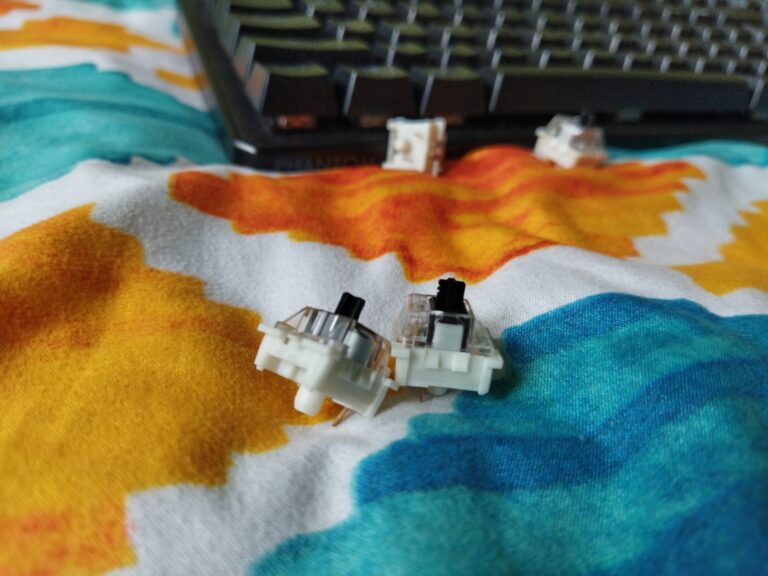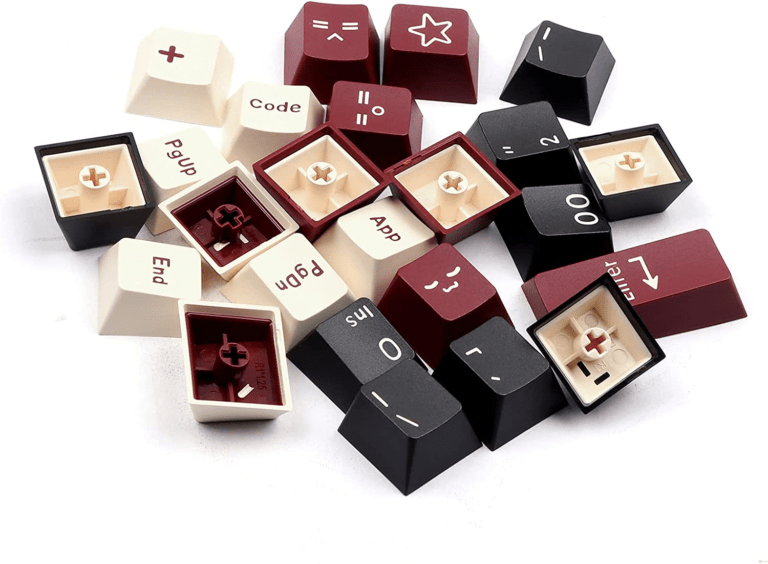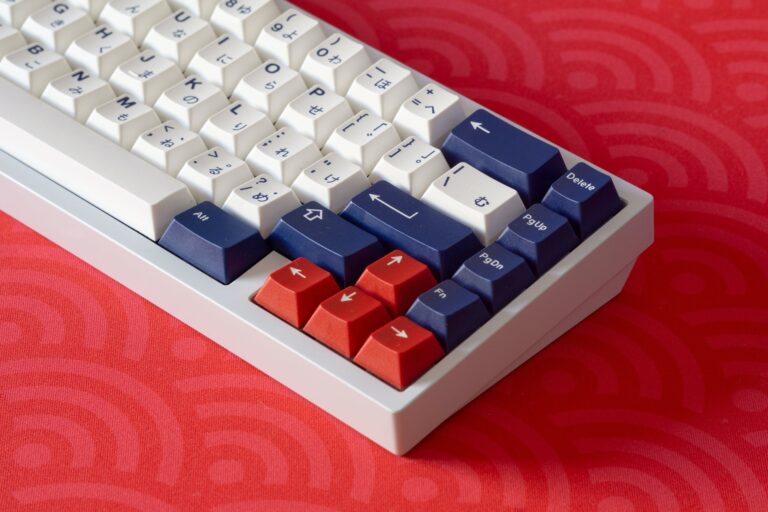Mechanical vs Membrane Keyboards
When choosing a new keyboard there are two types to choose from, mechanical keyboards and membrane keyboards. These types of keyboards have sparked debates among gamers and casual users alike to determine which kind of keyboard is the best for gaming and work.
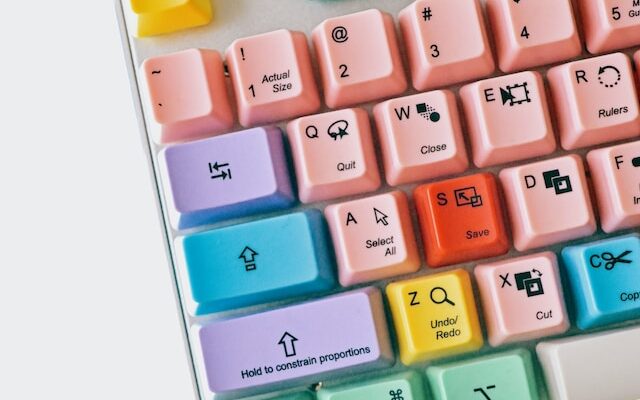
Mechanical Keyboards
Mechanical keyboards operate on individual mechanical switches for each key. These switches are made up of several moving parts, including a hard plastic “stem” containing two metal contacts and a spring underneath. When a key is pressed, the contacts connect, registering the keystroke. This mechanism not only provides tactile feedback but also emits the distinctive click sound mechanical keyboard enthusiasts cherish.
Typing on a mechanical keyboard can be a bit loud and have the typical clicking sound of this kind of keyboard. The tactile feedback and audible clicks with each press can enhance the typing experience and accuracy because you are sure that you have actually pressed the key. Additionally, mechanical keyboards often boast key rollover, allowing multiple key presses to be registered simultaneously. This feature is particularly beneficial for gamers and fast typists.
One of the standout features of mechanical keyboards is the ability to customize key switches. Users can choose switches with different actuation forces and tactile feedback levels, tailoring the typing experience to their preferences. This versatility has contributed to the widespread popularity of mechanical keyboards among gaming communities and professional typists.
Membrane Keyboards
In contrast, membrane keyboards use a different technology. Each key has a rubber dome that sits atop a membrane layer that, when pressed, makes contact with a circuit beneath, registering the keypress. The absence of individual mechanical switches distinguishes membrane keyboards from their mechanical counterparts.
Typing on a membrane keyboard is a quieter affair. The lack of audible clicks makes them an ideal choice for quiet work environments or shared spaces. The membrane’s softer feel, however, means less tactile feedback compared to mechanical keyboards. While some users appreciate the softer touch, others find the lack of physical confirmation less satisfying.
Membrane keyboards often win the budget category. They are generally more affordable to manufacture, translating to a cheaper price point for consumers. Additionally, membrane keyboards tend to be lighter and more portable, making them a preferred choice for those on the go.
Choosing Your Side: Factors to Consider
Typing Preferences
When deciding between a mechanical and a membrane keyboard, consider your typing preferences. If you relish the tactile feedback and audible clicks, a mechanical keyboard might be your ideal companion. On the other hand, if you prefer a quieter and softer typing experience, a membrane keyboard could be the way to go.
Intended Use
The intended use of the keyboard also plays a crucial role in the decision-making process. Gamers and professional typists who demand precision and quick response times often lean towards mechanical keyboards. Conversely, if you prioritize a budget-friendly and lightweight option for general use, a membrane keyboard might be more suitable.
Budget Constraints
Budget constraints can significantly impact your choice. While mechanical keyboards offer a customizable and premium typing experience, they come with a higher price tag. If you’re looking for a more economical option, a membrane keyboard provides a budget-friendly alternative without compromising basic functionality.
Keyboard Recommendations
Mechanical Keyboards:
Keychron Q6: Our top pick for a great mechanical keyboard is the Keychron Q6. It’s awesome for all sorts of typing tasks. The keys are Gateron Switches which have a great feel when you press them and they even have a gasket-mounted design that makes typing even better because it avoids the sensation of bottoming out when pressing a key.

Logitech G915 LIGHTSPEED: If you’re looking for a wireless mechanical keyboard, the Logitech G915 LIGHTSPEED is a fantastic choice. It’s slim and the keys are not too tall, so typing is comfortable. The battery lasts a super long time, up to 30 hours on one charge. It’s a bit pricier but it’s worth it if you want that wireless freedom.

Membrane Keyboards:
Roccat Magma: For a solid membrane keyboard, we recommend the Roccat Magma. It’s got this cool RGB color system going on, and there are extra options for customizing what your keys do. It has a unique RGB color system, a whole second layer of macro options, and a feel of genuine quality in each keypress. It even has a detachable palm rest
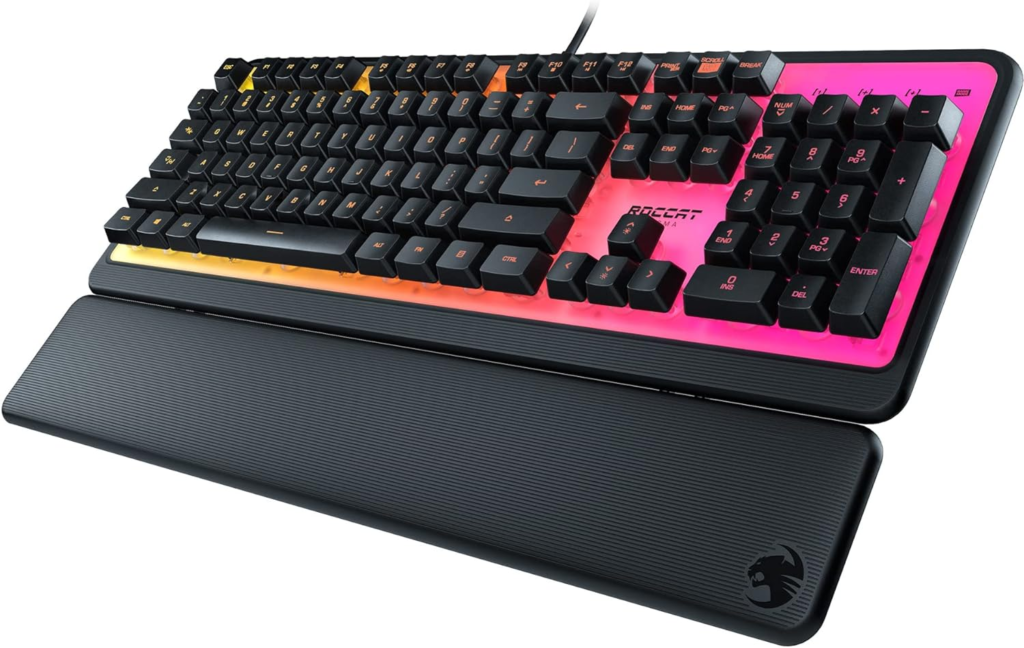
Logitech K120: If you’re on a budget, the Logitech K120 is a great choice for a membrane keyboard. It’s designed to resist spills, which is handy. The keys are low profile, so typing is comfortable. And the best part it is a super affordable option for a good keyboard.

Conclusion
In the realm of mechanical vs. membrane keyboards, the battle ultimately boils down to personal preference and specific needs. Mechanical keyboards deliver a satisfying tactile and auditory experience, perfect for those who appreciate the sensation of each keystroke. On the flip side, membrane keyboards offer a quieter and budget-friendly option, catering to users who prioritize practicality over extravagance.
Disclaimer: This page contains links that are part of different affiliate programs. If you click and purchase anything through those links, I may earn a small commission at no extra cost to you. Click here for more information.
SUBSCRIBE TO TECHNOBRAX
If you want to receive updates whenever we post new articles or emails regarding discount deals on mice and keyboards, or other electronic devices CLICK HERE to SUBSCRIBE


